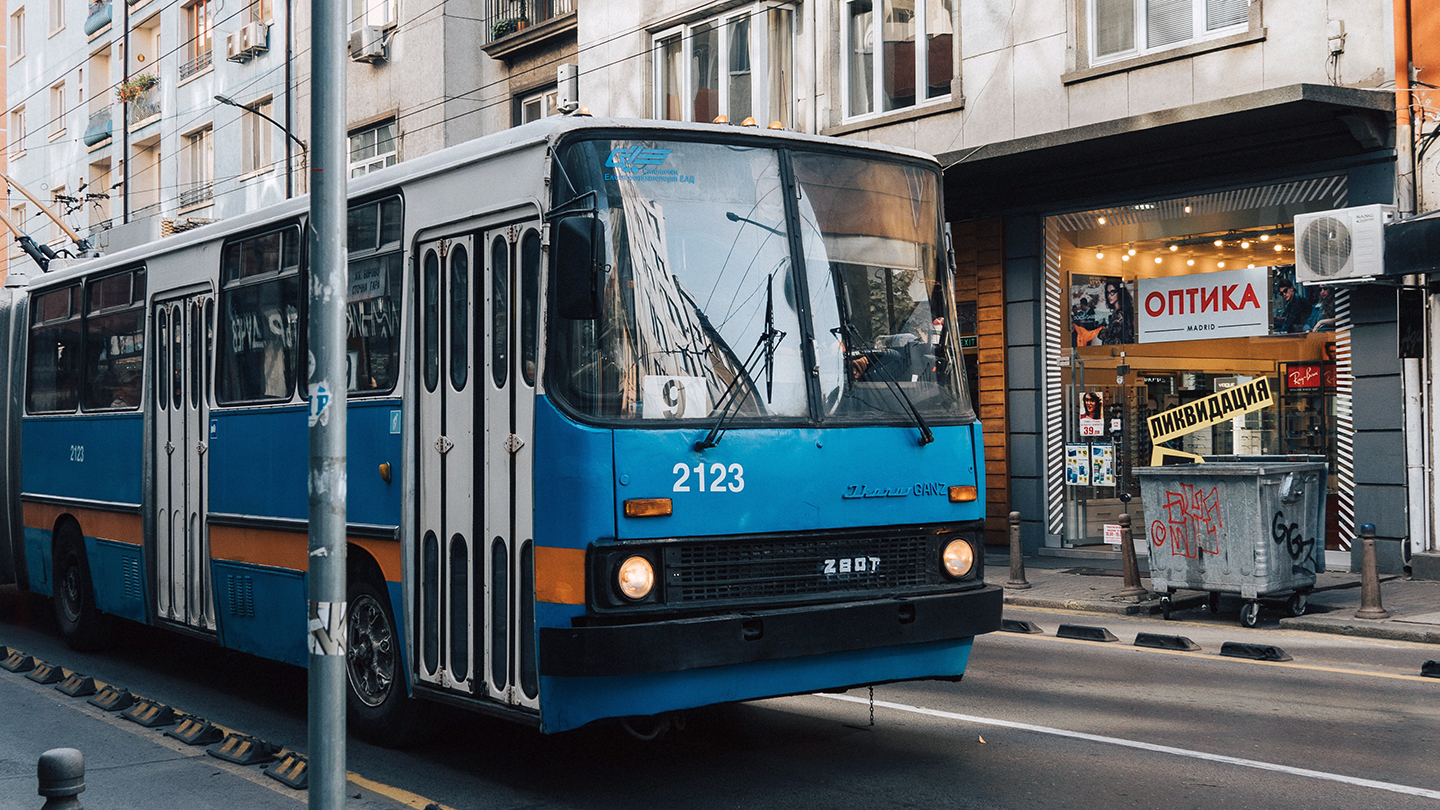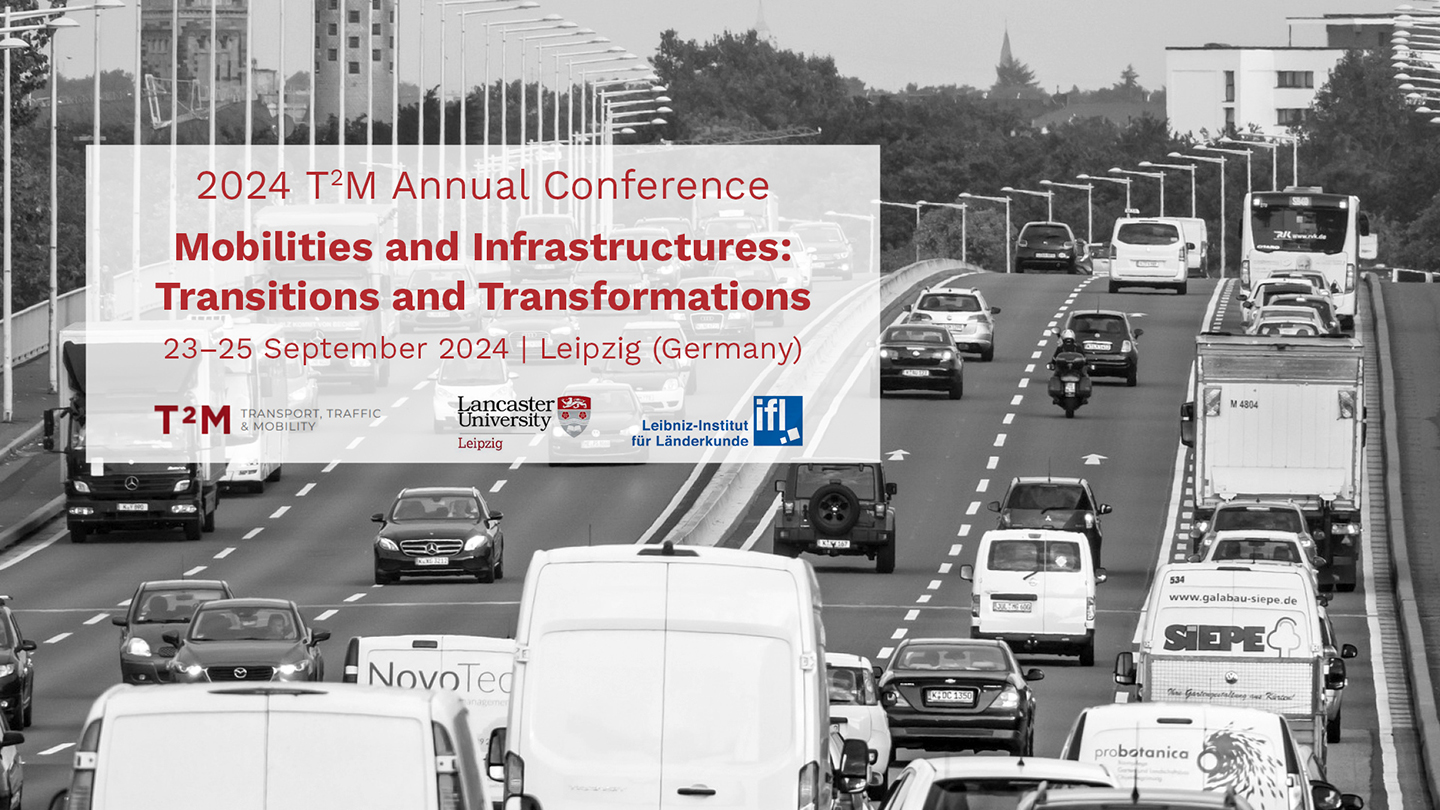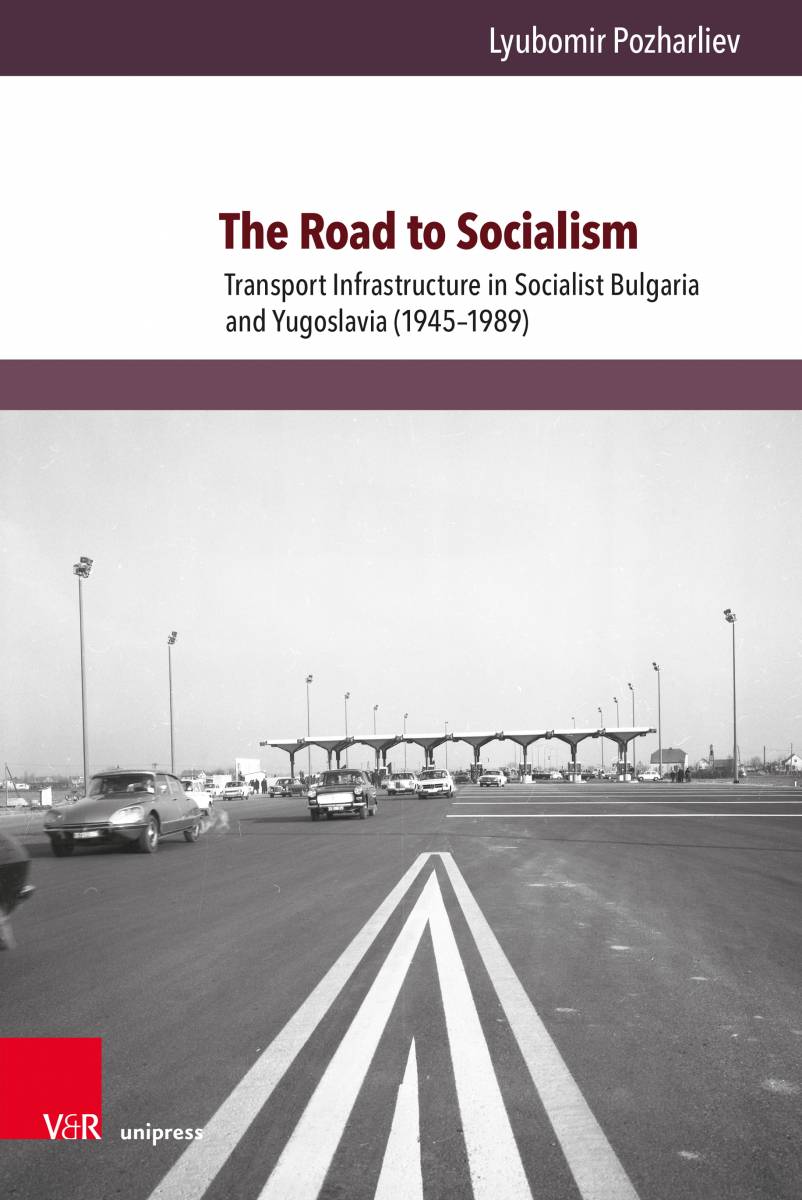We invite applications for our Visiting fellows programme (f/m/d) within the research project “Contentious Mobilities: Rethinking Mobility Transitions through a Decolonial Lens – CoMoDe”.
Applicants are welcome to apply for stays ranging from one to six months at the Leibniz Institute for Regional Geography in Leipzig (IfL). The fellowship scheme is administered by the IfL and financed by the Leibniz Association in the framework of its Junior Research Group programme.
New Article by Lyubomir Pozharliev on Sofia’s Trolleybuses and their Decolonial Implications
The Bulgarian Sociologičeski Problemi Journal recently published their final issue of 2024, with the overarching topic being “From one Language into another”: Social Problems Seen Through the Eyes of Bulgarian Scholars in Foreign Countries (Issue Editors: Raia Apostolova, Neda Deneva). CoMoDe’s own Lyubomir Pozharliev contributed an intriguing article to the edition with the title Decolonial Insights into Public Transport in Sofia: “Eastern” Trolleybuses Vs. “Western” E-Buses.
Abstract: The battery industry, i.e. battery-powered electric cars and buses, has been on the rise for the past decade or so. Several municipalities in Eastern Europe, Central Asia and elsewhere in the world are promoting and advertising their progressiveness by being ready to introduce (or have already introduced) the new battery-electric buses wherever and whenever possible. On the other hand, trolleybus technology is still widespread in post-socialist countries and offers an electric alternative to the battery-powered bus. This paper attempts to address the introduction of the new technology from the per- spective of the older technology – the trolleybus one. Based on interviews with local experts and data from the Bulgarian capital, the paper will explore the potential of the decolonial perspective in addressing public transport developments in a post-socialist, Eastern European context.
The full article in Bulgarian, as part of Issue 2/56 in Sociologičeski Problemi Journal, can be accessed here (no free access).
New Article by Bermet Borubaeva and Egor Muleev on the Trolleybus Case in Bishkek
Published by the Berliner Gazette on the 11th of November 2024
In “Governing ‘Green’ Public Infrastructure: The Trolleybus Case in Bishkek,” Bermet Borubaeva and Egor Muleev take us on a ride through the tangled wires of Bishkek’s trolleybus saga—a tale of sustainability, bureaucracy, and a city at a crossroads. At the heart of the drama is Bishkek’s trolleybus system, the capital’s only electric public transport with enough capacity to avoid daily gridlock, yet it’s on the brink of extinction. City Hall, nudged by foreign consultants and seduced by shiny new e-buses, wants to ditch the old for the new—even though the old is green, functional, and beloved by the people. What follows is a classic case of public infrastructure caught in the gears of bureaucracy, where short-term decisions and backroom deals hold more weight than long-term planning.
The article further explores the role of local governance, workers’ struggles, and grassroots resistance in shaping the future of public infrastructure, using the trolleybus as a case study for broader issues in urban mobility and democratic accountability.
Read the whole article here.
New review by Lyubomir Pozharliev on “If Cars Could Walk: Postsocialist Streets in Transformation” ed. by Ger Duijzings and Tauri Tuvikene
The October 2024 issue of Technology and Culture is officially out and with that, a fresh review on the recently published “If Cars Could Walk: Postsocialist Streets in Transformation” ed. by Ger Duijzings and Tauri Tuvikene” by Lyubomir Pozharliev, part of the CoMoDe research group, has been published.
Read an excerpt of the review & get access here: https://muse.jhu.edu/pub/1/article/940504
Keynote Speaker | t2m Annual Conference 2024, Leipzig
We are happy to share that Prof. Waldemar Kuligowski will be joining us as a keynote speaker at the t2m Annual Conference in Leipzig in 2024. Her interdisciplinary research focuses on the intersection of mobility, sustainability, and digitalization. His research interests focus on the theory of culture, reflexive ethnography, anthropology of motorway, festivals and festivalization.
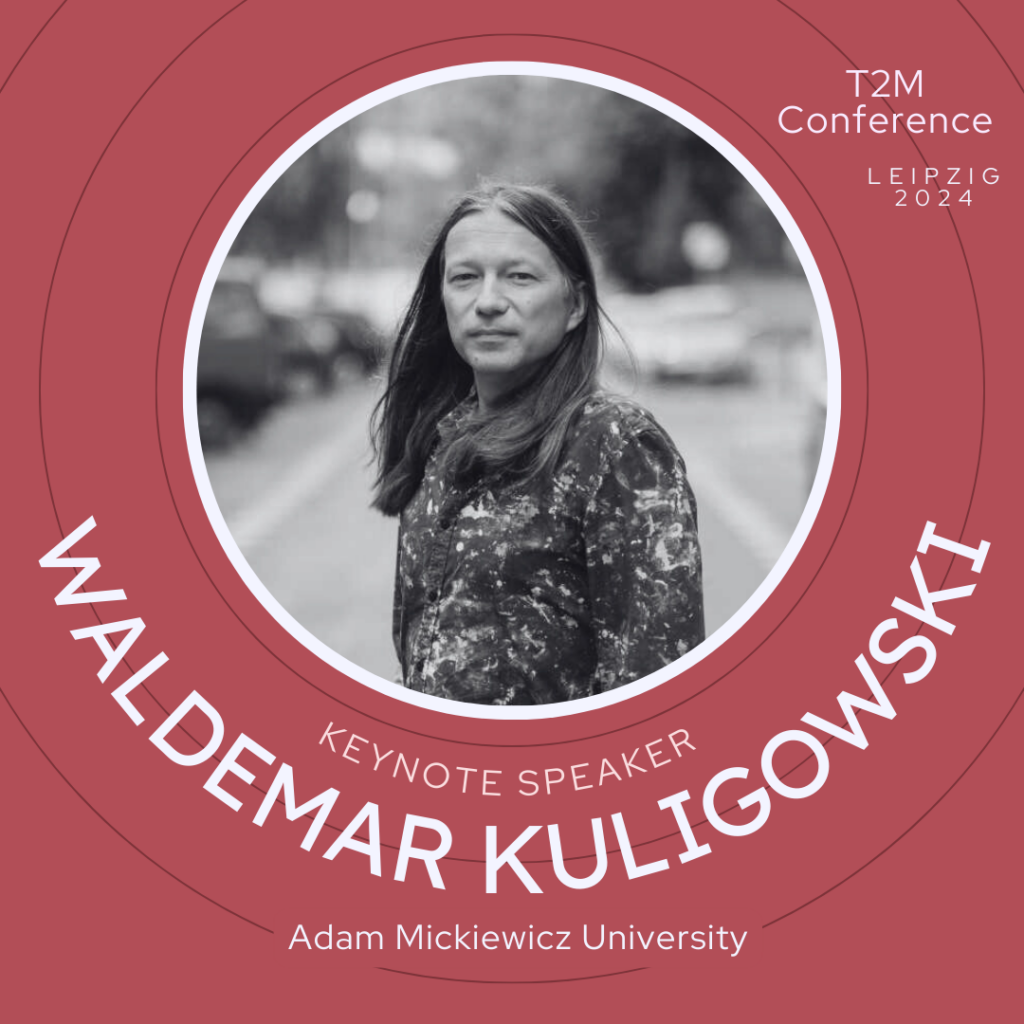
Recently he published Modernizing Localities in Poland: A Never-ending Transformation (Lanham – London – New York 2024) and (with Marcin Poprawski) Festivals and Values. Music, Community Engagement and Organisational Symbolism (Cham 2023). A selection of his critical essays in Serbian under the title “Polish Christ and Serbian Trumpets” is being prepared. As a “public intellectual”, he publishes his essays and articles in leading Polish newspapers and magazines. Recently he has been involved in organizing scientific conferences in a jazz club and at a punk rock music festival.
Registration for the 2024 Annual T2M Conference in Leipzig is now open!
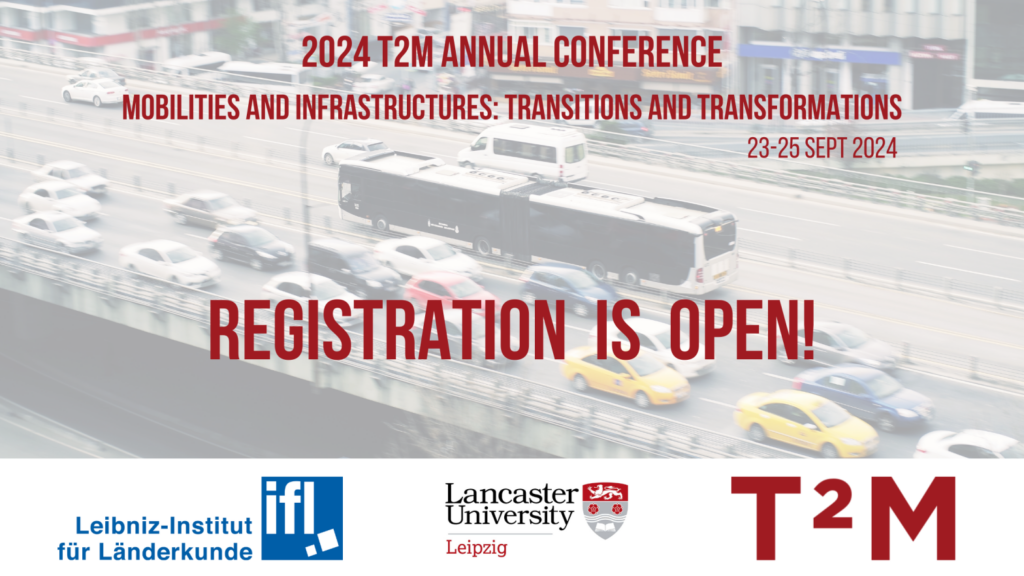
The pre-submission of conference contributions closed in April. If you are still interested in participating, please contact us at t2m@leibniz-ifl.de and we can discuss your options of participation!
Register before 7 September!
If you have not received a registration invitation email from us, please contact us at t2m@leibniz-ifl.de. Registration, payment, and submission of contributions are processed via the Indico conference registration portal.
Become a T2M Association member
We also invite you to become a member of the T2M Association if you have not done so yet. Being a T2M member yields numerous benefits, including discounted conference fees and access to the Journal of Transport History, Transfers and Mobilities. You will find more information here: https://t2m.org/internal/become-a-member/
If you have any questions, feel free to reach out to us at t2m@leibniz-ifl.de. We are here to help!
Keynote Speaker | t2m Annual Conference 2024, Leipzig
We are thrilled to announce that Prof. Frauke Behrendt will be delivering the keynote lecture at the t2m Annual Conference in Leipzig in 2024. Her interdisciplinary research focuses on the intersection of mobility, sustainability, and digitalization.
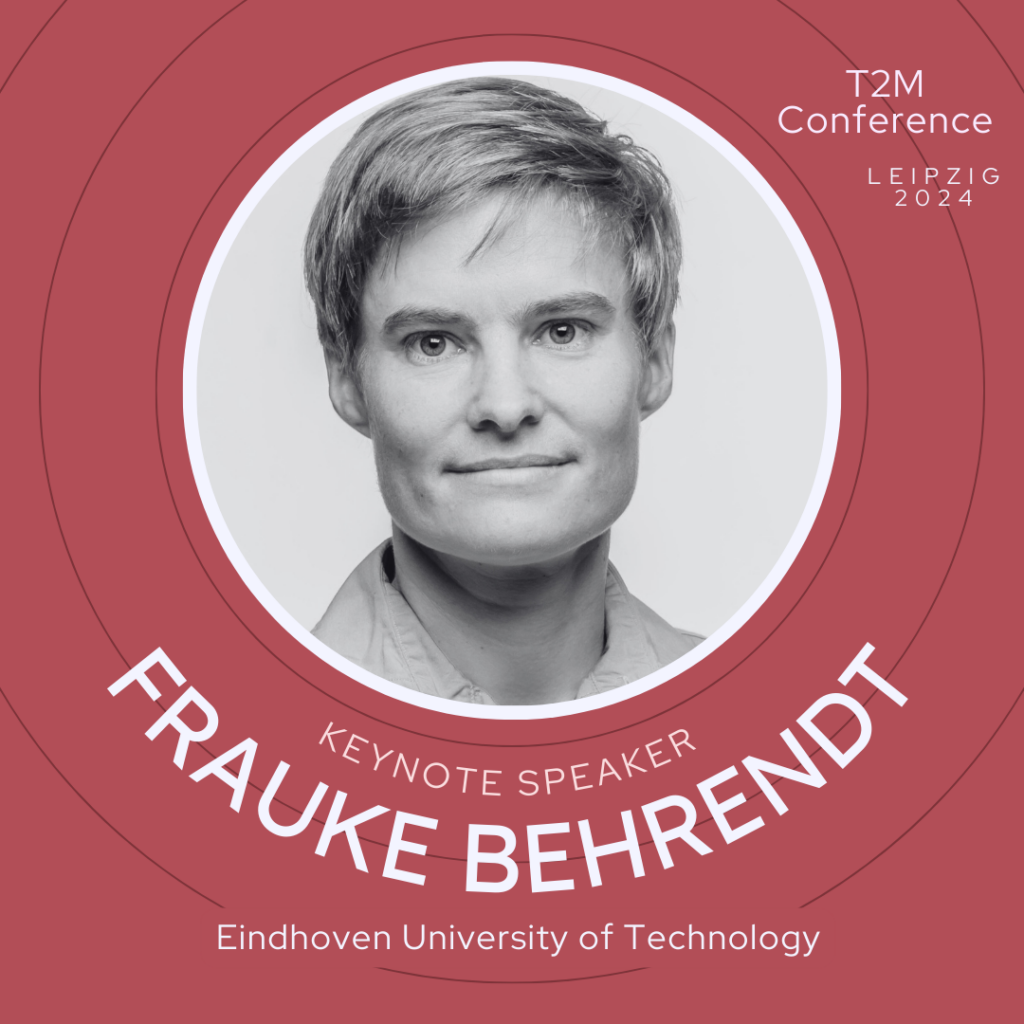
Prof. Behrendt’s current research on social justice includes work with Mimi Sheller on Mobility Data Justice, and exploring the implications of AI for the governance of mobility. Current work on micro-mobility comprises Dutch, UK, South Korean, and Chinese case studies, alongside research on the electric mobility transitions in the Global South, specifically around motorbikes and rickshaws. Frauke Behrendt is also involved in ELEVATE project for which she led the funding application. This project explores micromobility in the UK, in collaboration with Leeds, Oxford, and Brighton University. Her previous research focussed on smart cycling, AI and digital/data society, the musical use of mobile phones, as well as sonic interaction design.
VISITING FELLOWS PROGRAMME
We invite applications for our Visiting Fellows Programme (f/m/d) in the framework of the research project “Contentious Mobilities: Rethinking Mobility Transitions through a Decolonial Lens (CoMoDe)”
Academic and non-academic applicants are welcome to apply for stays ranging from one to six months at the Leibniz Institute for Regional Geography (IfL) in Leipzig. The fellowship scheme is administered by the IfL and financed by the Leibniz Association in the framework of its Junior Research Group programme.
Continue reading “VISITING FELLOWS PROGRAMME”2024 T2M ANNUAL CONFERENCE
23–25 September 2024, Leipzig, Germany
Organised by the Leibniz Institute for Regional Geography (IfL), and Lancaster University, Leipzig, Germany. Final Conference of the CoMoDe Project (Contentious Mobilities: Rethinking Mobility Transitions through a Decolonial Lens)
Mobilities and Infrastructures: Transitions and Transformations
Modern societies are experiencing striking technological, ecological, socio-economic and cultural as well as political challenges – with mobility questions at the forefront of these contentions. Actors and institutions across the globe increasingly recognize the need for systemic changes in the ways goods, people, ideas, policies and capital are set in motion – usually framed in the terms of “mobility transitions”. Green deal policies are drafted and “just transition” funds are set up, acknowledging that transition to carbon-free futures will require substantial resources to succeed, but also to avoid uneven and unfair socio-spatial effects on nations, regions, cities, and rural places. Existing research has already criticized mobility transition policies for their narrow normative assumptions, their reliance on large-scale infrastructures and technological innovations, and elaborated on the concepts of mobility justice and commoning mobility as a way of devising collective and collaborative means of shaping mobility transitions (Cresswell et. al 2021; Sheller 2018). It is therefore time to interrogate how and in which ways have “mobility transitions” been framed in different places at different times in their multifaceted histories.
Continue reading “2024 T2M ANNUAL CONFERENCE”Freshly published: The Road to Socialism
A core member of the CoMoDe team Lyubomir Pozharliev recently published his new book “The Road to Socialism. Transport Infrastructure in Socialist Bulgaria and Yugoslavia (1945–1989)” via V&R unipress. It is accessible as an open source publication supported by the Leibniz foundation.
The book is the first comprehensive empirical study of transport infrastructure in two socialist countries in the years 1945–1989. In the case study of Yugoslavia, the construction of roads was interrelated with building socialist and trans-ethnic identities, uniting all federal republics. In practice, the “Brotherhood and Unity Highway” was an artery linking the capitals of the most industrialized republics, neglecting Kosovo, Bosnia and Herzegovina, Montenegro and parts of Macedonia. In socialist Bulgaria existed a clear ideological link between transport and nation building. Bulgarian roads’ disintegrative function was best seen in the example of the “Highway Ring” which, constructed as an inner circle, isolated the border regions and areas inhabited by Bulgarian Muslims and Turks.
Dr Lyubomir Pozharliev is a research associate at the Leibniz-Institut für Länderkunde (Leibniz Institute for Regional Geography) in Leipzig. He is working within the Leibniz Junior Research group “Contentious Mobilities: rethinking mobility transitions through a decolonial lens” with a focus on mobility modes in Central Asia and other post-socialist countries. Between 2018 and 2020 he was a postdoctoral researcher within SPP “1981 Transottomanica”. He received his doctorate in history and cultural studies (2018) from Justus-Liebig University, Giessen at the Department of Eastern European History.
The full Open Access PDF can be found here.

